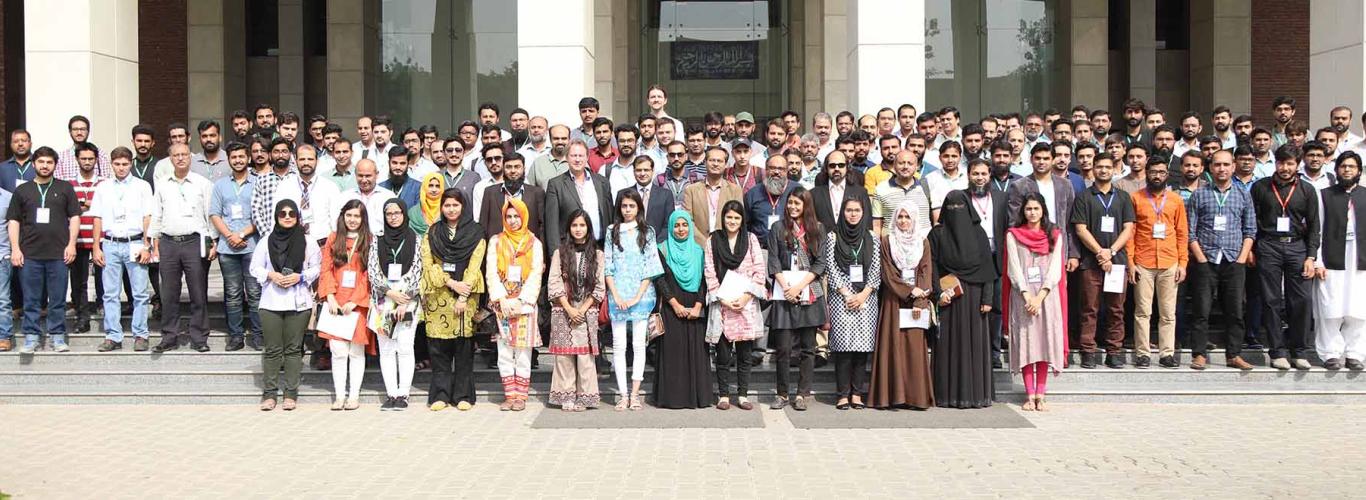LUMS Holds Workshop on Field and Assistive Robotics (WFAR)
The Lahore University of Management Sciences (LUMS), Pakistan’s most pre-eminent higher education institution, held a series of workshops and mini-courses from October 11-15, 2018 at LUMS in collaboration with the recently established National Agriculture Robotics Lab (NCRA) and the Centre of Water Informatics and Technology (WIT).
The workshop events, which were held in collaboration with the Department of Electrical Engineering (EE), LUMS were funded by the German Academic Exchange (DAAD) along with competitive international grants won from the Global IEEE Control Systems Society Outreach Fund. The events were attended by over 600 participants from across Pakistan.
On the first day, a mini-course and tutorial on ‘Conversations in Deep Learning’ was presented by Dr. Hassan Mohiyuddin, LUMS EE faculty. The course consisted of two lectures; one on Machine Learning (including, regression, classification, and learning), and the other on Deep Learning and Neural Networks and Back Propagation.
The return of the 15th Workshop on Field and Assistive Robotics (WFAR) was also celebrated by LUMS, which saw participation by well-known international speakers representing their respective research areas. Speakers included, Dr. Umar Shahbaz from EME-NUST, Dr. Usman Khan from Tufts University, Dr. Waseem Abbass from ITU, Dr. Yasir Ayaz from SMME-NUST, and Dr. Aamer Iqbal Bhatti from CUST. In this workshop, new initiatives of NCRA and NCAI Labs were discussed, along with the efficient management of Cyber-Physical systems.
On the final day of the events, a mini-course tutorial was also held on 'Kinematics and Dynamics of Mobile Robots' by Professor Dr. Karsten Bern. The session comprised of three lectures which covered the fundamentals of kinematics modelling and drive kinematics, including analytical and geometric solution, and mobile robots and dynamics. Each lecture was concluded by an informative cross-questioning session.
Throughout the series of sessions, an overwhelming and positive response was experienced by the participants, as well as the speakers.





